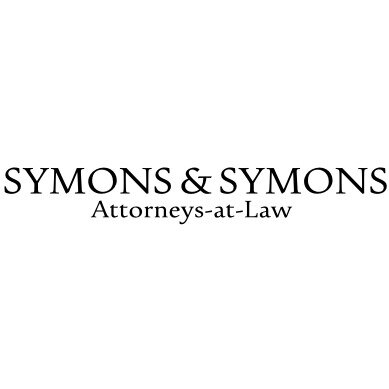Best Nonprofit & Charitable Organizations Lawyers in Cayman Islands
Share your needs with us, get contacted by law firms.
Free. Takes 2 min.
Or refine your search by selecting a city:
List of the best lawyers in Cayman Islands
About Nonprofit & Charitable Organizations Law in Cayman Islands
Nonprofit and charitable organizations in the Cayman Islands play a crucial role in supporting various social causes, including education, health, and the arts. The legal framework governing these organizations is designed to ensure transparency, accountability, and effectiveness in their operations. The primary legislation that oversees nonprofits is aimed at maintaining the integrity of these organizations while providing them with the structure needed to achieve their goals. The Cayman Islands offer a supportive environment for nonprofit organizations, making it an attractive location for philanthropic activities.
Why You May Need a Lawyer
There are several scenarios where legal advice may be beneficial for individuals or entities involved with nonprofit and charitable organizations in the Cayman Islands:
- Establishment: Understanding the legal requirements for setting up a nonprofit or charitable organization.
- Compliance: Ensuring ongoing compliance with local laws and regulations.
- Governance: Developing robust governance structures, including drafting bylaws and policies.
- Taxation: Navigating tax exemptions and addressing any tax-related issues.
- Disputes: Resolving conflicts within the organization or with third parties.
- Funding: Legal guidance on securing and managing donations and grants.
- Dissolution: Properly winding down operations, if necessary.
Local Laws Overview
The framework for nonprofit and charitable organizations in the Cayman Islands primarily revolves around the following key legislation:
- The Non-Profit Organisations Law: This law sets out the requirements for registration, governance, and operational transparency of nonprofit organizations.
- The Companies Law: Provides options for the establishment of nonprofit companies limited by guarantee.
- The Income Tax Law: Offers guidelines on tax exemptions and related financial matters for non-commercial entities.
It is essential for nonprofit entities to adhere to these laws to maintain their status and continue operations effectively within the Cayman Islands.
Frequently Asked Questions
What is the process for registering a nonprofit organization in the Cayman Islands?
To register a nonprofit organization, you need to submit an application to the Registrar of Non-Profit Organisations, along with required documentation including a statement of purposes and details of the governing body.
Are nonprofit organizations in the Cayman Islands eligible for tax exemptions?
Yes, registered nonprofit organizations may qualify for certain tax exemptions. Legal counsel can guide you through the eligibility and application process.
What are the reporting requirements for nonprofits?
Nonprofit organizations are required to submit annual financial summaries and reports outlining their activities and any changes to their governance structure.
Can foreign nonprofits operate in the Cayman Islands?
Foreign nonprofits must register and comply with local laws to conduct operations in the Cayman Islands.
How are board members of a nonprofit selected?
Board members are typically elected as per the organization's bylaws, which must align with local legal requirements.
What legal responsibilities do board members have?
Board members are responsible for ensuring compliance with laws, overseeing the organization's operations, and safeguarding its mission and financial health.
Do nonprofits need to keep records of their activities?
Yes, maintaining thorough records is a legal requirement to ensure transparency and accountability within nonprofit operations.
Are there any restrictions on how nonprofits in the Cayman Islands can use their funds?
Funds must be used in accordance with the nonprofit's stated purposes and objectives, ensuring compliance with applicable legal provisions.
What is required to change the purpose of a nonprofit organization?
Altering the organization's purpose typically involves amendments to its constitutive documents and must be approved by the relevant authorities.
Can a nonprofit organization engage in for-profit activities?
Nonprofits can engage in for-profit activities if they support the nonprofit’s mission and comply with legal constraints related to nonprofit operations.
Additional Resources
Those seeking additional information on nonprofit and charitable organizations in the Cayman Islands may find the following resources helpful:
- Cayman Islands Department of Commerce and Investment
- The Registrar of Non-Profit Organisations
- Local law firms with expertise in nonprofit law
- Nonprofit-related workshops and seminars provided by local institutions
Next Steps
If you require legal assistance for a nonprofit or charitable organization in the Cayman Islands, consider taking the following steps:
- Consult with a law firm that specializes in nonprofit and charity law to discuss your specific needs and concerns.
- Gather all necessary documentation, including constitutive and governance documents.
- Consider attending seminars or workshops on nonprofit governance and compliance.
- Stay informed about changes in legislation that may affect your organization.
Engaging a lawyer can provide clarity and peace of mind, helping you navigate the complexities of establishing and operating a nonprofit organization in the Cayman Islands successfully.
Lawzana helps you find the best lawyers and law firms in Cayman Islands through a curated and pre-screened list of qualified legal professionals. Our platform offers rankings and detailed profiles of attorneys and law firms, allowing you to compare based on practice areas, including Nonprofit & Charitable Organizations, experience, and client feedback.
Each profile includes a description of the firm's areas of practice, client reviews, team members and partners, year of establishment, spoken languages, office locations, contact information, social media presence, and any published articles or resources. Most firms on our platform speak English and are experienced in both local and international legal matters.
Get a quote from top-rated law firms in Cayman Islands — quickly, securely, and without unnecessary hassle.
Disclaimer:
The information provided on this page is for general informational purposes only and does not constitute legal advice. While we strive to ensure the accuracy and relevance of the content, legal information may change over time, and interpretations of the law can vary. You should always consult with a qualified legal professional for advice specific to your situation.
We disclaim all liability for actions taken or not taken based on the content of this page. If you believe any information is incorrect or outdated, please contact us, and we will review and update it where appropriate.
Browse nonprofit & charitable organizations law firms by city in Cayman Islands
Refine your search by selecting a city.

















